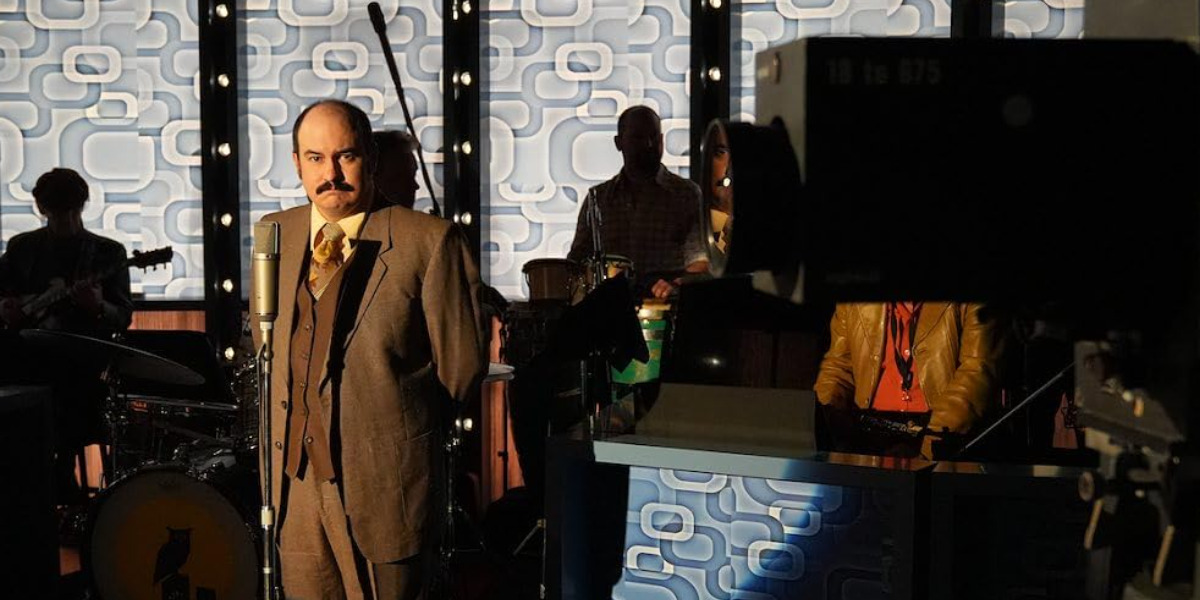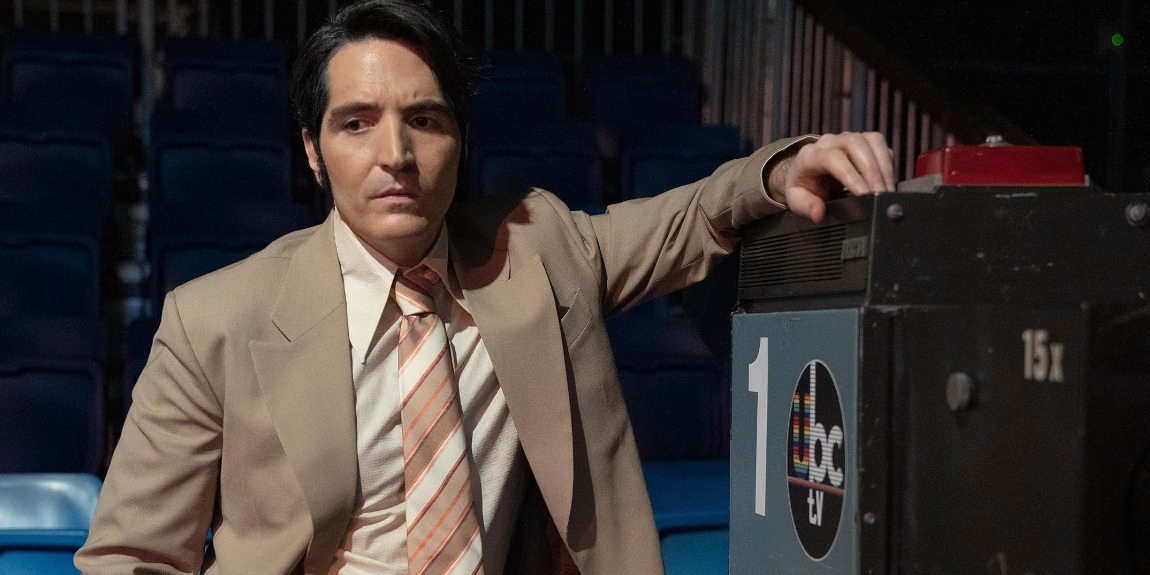The found footage horror charted in ‘Late Night with the Devil,’ within a 70s late-night talk show setting, pitches an even pacing, allowing the storyline to build gradually in stakes and scares alike. The film centers around a Halloween special episode of the “Night Owls with Jack Delroy,” wherein the host invites a number of paranormal guests and acts, Skeptic Carmichael Haig and Cult Survivor Lilly, to explore the world of the supernatural in front of a live camera and audience. However, an unconventional demonstration of parapsychology and demonic possession leads to unexpected spirals that threaten to condemn Jack, his crew, and the audience to a much worse fate than an on-air cancellation.
The story focuses on the events that unfold on live television— from Jack’s humorous monologue, Christou and Carmichael’s rivalry, and June Ross-Mitchell’s demonstration. Even so, the film finds the time to delve into the fictional show’s behind-the-scenes instances. As such, since the support of Walker Bedford’s UBC Network shapes Jack Delroy’s TV endeavors, one must be compelled into curiosity about the former’s realism. SPOILERS AHEAD!
Late Night with the Devil Fictionalizes Walker Bedford and his TV Network
While the found footage element of ‘Late Night with the Devil’ instills an undeniable touch of realism within the narrative, the characters, events, and details of the plot remain fictitious additions in a fictional tale. Consequently, despite possessing loose real-life inspirations, Night Owls with Jack Delroy fails to maintain any real-life counterpart. Therefore, the TV Network UBC, which houses the same talk show, inherits a similar level of fictionality. Likewise, Walker Bedford, the Executive behind Night Owls, who offers a five-year deal to Jack, is also another fabricated element within the story.

In-universe, Bedford and his network play into the narrative in ways that fulfill the audience’s expectations. Bedford offers Jack a lucrative TV deal to host his own talk show and weasel his way into America’s heart. While Jack succeeds in doing the same in part, he consistently falls short of his contemporary talk show hosts, notably Johnny Carson. For the same reason, network ratings continued showcasing a perpetual failing for Jack, who managed to be good enough but never the best.
The same line of events leads Jack into the literal arms of the devil as he trades a soul for his success. Nevertheless, evil comes to reap its promised offer in devious ways as it ensures an unforgettable legacy for the talk show Night Owls with Jack Delroy— in the worst ways possible. Even though UBC and Bedford play no direct hand in the same, their looming contract with Jack ends up becoming a catalyst for his ultimate demise. Thus, the TV Network plays into the more devious imagined interpretations of the entertainment industry that emerged significantly following the Satanic Panic of the 80s.
Nonetheless, the narrative renders UBC and Bedford fictitious sparse as the two remain in their involvement within the film— save for their unseen presence through Producer Leo Fiske. Therefore, even though viewers may be able to find a similarly titled UBC-TV Network, the network or its executives hold no connection to ‘Late Night with the Devil.” The UBC depicted in the film, under a fictional Walker Bedford’s authority, is equally fictitious in nature.
Read More: Late Night with the Devil: Fictional or True Story?


You must be logged in to post a comment.